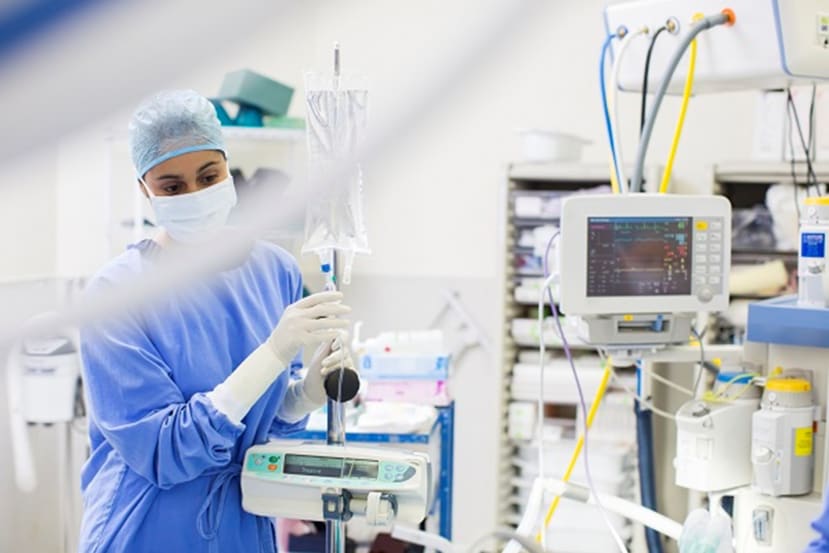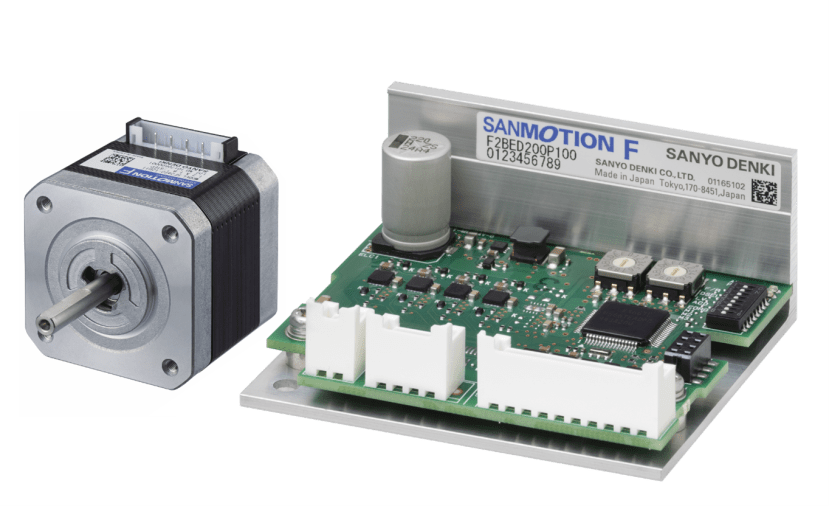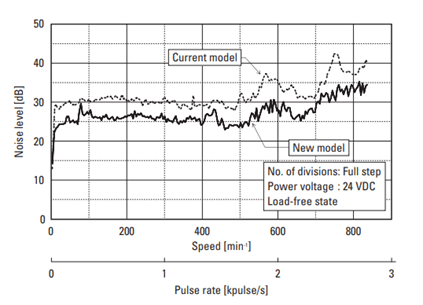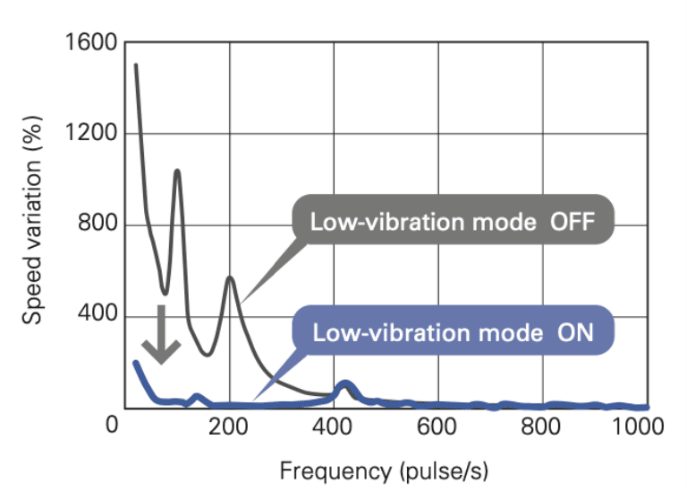Why SANMOTION Stepper Motors Excel in Medical Device Design
Follow articleHow do you feel about this article? Help us to provide better content for you.
Thank you! Your feedback has been received.
There was a problem submitting your feedback, please try again later.
What do you think of this article?
In the precision-driven area of medical device design, engineers look for solutions that prioritise accuracy, reliability, and efficiency. SANYO DENKI's SANMOTION F2 2-Phase Stepper Motor Systems include a wide range of motor sizes from miniature 14mm to 86mm frame sizes and sophisticated stepper motor drivers that allow engineers to design precise and reliable medical motion control systems. In this article, we will discuss the factors that make SANMOTION F2 Stepper Motors and Drives the ideal choice for engineers involved in medical device development.
User-Friendly Operation with Sensorless Precision
The design of stepping motors inherently allows for precise and accurate repetitive positioning without the dependency on external sensors. This eliminates the necessity for external sensor feedback, simplifying your system and fostering stable and efficient operation.
Enhanced Torque Performance for Medical Device Functions: Positioning, Fluid Handling, and Diagnostics
Within the medical device industry, improved torque can be a critical parameter. The SANMOTION F2 stands out by delivering robust torque that enhances the operational efficiency of medical equipment, ensuring precise and controlled motion. This exceptional torque is achieved through the integration of innovative technologies:
- Optimal Stator Core Magnetic Circuit Design: A systematic analysis of stator core components such as back yokes, poles, and toothed structures was completed to design a refined magnetic circuit. Along with the improved torque, iron loss was reduced.
- Wider Winding Space: Identifying areas susceptible to magnetic flux saturation and fine-tuning the dimensions of the stator and its poles led to the expansion of the winding space. This allowed Sanyo Denki to reduce copper loss without compromising torque. (Copper loss, also known as I²R loss, is the power loss due to the resistance of the copper windings in the stator.)
- High-Residual Magnetic Flux Density Magnet: Adoption of magnets with increased residual magnetic flux density played a pivotal role in boosting torque without extending the overall motor length. For applications requiring lower torque, our compatible amplifiers facilitate precise control by adjusting voltage to achieve the desired current and proportional torque levels.
Minimal Noise for Enhanced Patient Comfort
In the medical field, disruptive noise can pose a significant challenge. The SANMOTION F2 ensures a quiet operational mode, enhancing patient comfort and creating a conducive workspace for healthcare professionals. The attainment of low noise levels results from two impactful design enhancements:
- Sturdy Stator Core: An in-depth examination of structural components such as back yokes and poles led to dimensional enhancements, bolstering both torque and the rigidity of the stator core.
- By adjusting the tightness between the stator and the flange/end cap and optimizing the engagement length, post-assembly motor rigidity was increased, ultimately reducing noise. (The term “engagement length” in the context of a stepping motor typically refers to the length or depth by which the rotor’s teeth or other mechanical features engage with the stator’s magnetic field or poles.)
Efficient Thermal Management for Safe Medical Devices
Consistent maintenance of operating temperatures is imperative in the utilization of stepper motors within medical devices, as temperature fluctuations can detrimentally affect motor performance, reliability, and the overall safety and efficacy of the device. The SANMOTION F2 incorporates innovative heat dissipation technology, effectively averting overheating and ensuring dependable performance even during extended usage. Additionally, eco-efficiency is heightened through the enhancement of motor efficiency.
The stator core design minimises iron loss, and the expanded winding space reduces copper loss, enabling the F2 Series to achieve equivalent torque with less input current. This dual optimisation contributes to:
- Lower stepping motor temperature.
- Reduced input current.
The combined effect of lower temperature and decreased input current translates into minimised heat generation, enhancing the eco-efficiency of the F2 Series. Consequently, the F2 Series emerges as an especially fitting solution for medical devices operating in close proximity to patients.
Low Vibration Mode and Micro stepping for Smooth Device Operation
The F2 Driver is equipped with a low-vibration mode function designed to suppress vibrations, offering smooth machine operation even under 2-phase full-step and half-step coarse resolution settings.
Moreover, the implementation of micro stepping drivers facilitates the seamless operation of equipment with minimal vibration. (For 2-phase systems, the maximum achievable divisions are 16, while for 5-phase systems, the maximum reaches an impressive 250 divisions.)
Full Customised Solution
Experience a customised solution where we tailor motors with optimal windings to meet the specific requirements of customer devices, encompassing variables such as current, rotation speed, and torque.
Uplifting Medical Device Standards
SANYO DENKI’s SANMOTION F2 Series stepper motor system stand out as a practical choice for professionals involved in medical device design. With sensorless operation for simplified design, the system's outstanding torque, precision, heat management, and noise control capabilities converge to help offer improved device performance and an enhanced patient and health professional user experience.
The Sanmotion F2 System joins other Sanyo Denki motion control products available in the UK from EAO Ltd. including stepper motors with frame sizes ranging from 14mm to 106mm and closed-loop stepper motors. Motor customisation options include lead screws, machined shafts, and special cables and connectors.





Comments